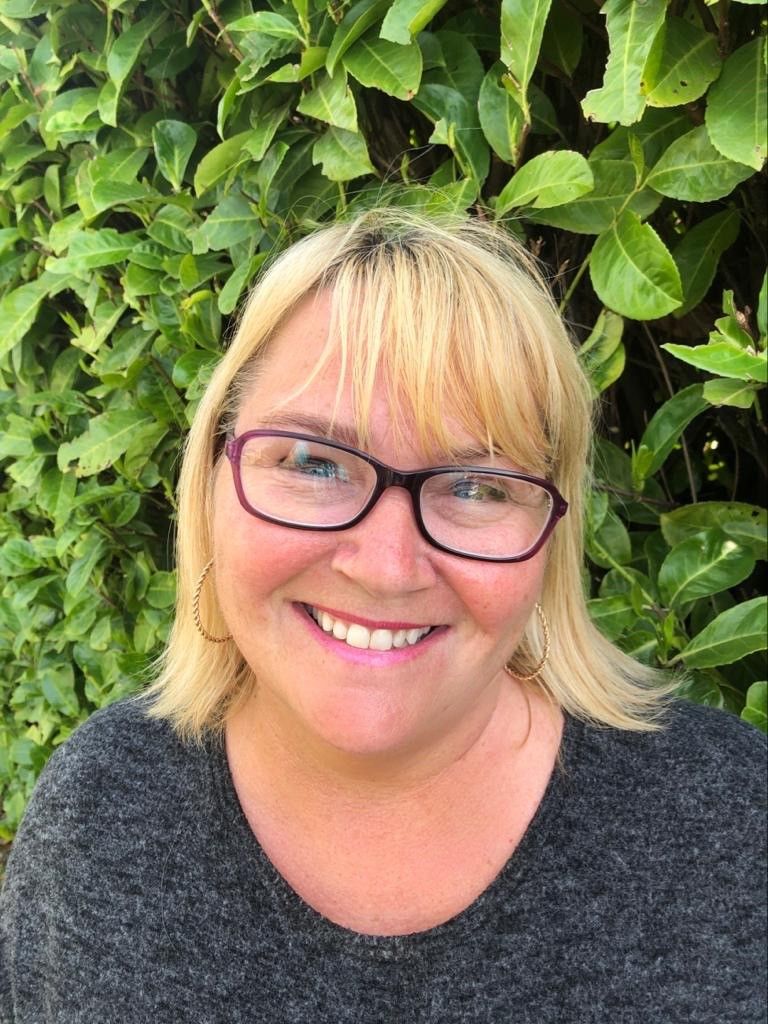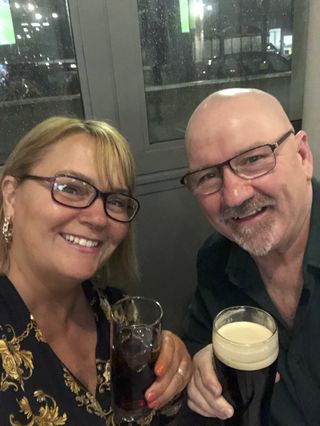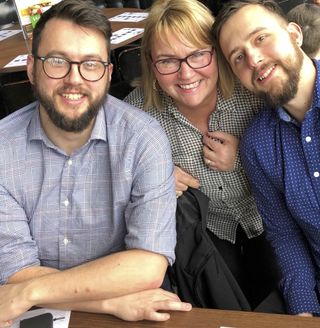'I'll forget my family one day' Mum heartbroken by dementia diagnosis at 49
Grandmum-of-two, Tracey Lane, talks about life with dementia in her 50s, living every day to the fullest, and the fear that one day, her loved ones will be like strangers...

In the UK, there are currently over 40,000 people living with early-onset dementia, all diagnosed with the condition before the age of 65. Grandmum-of-two, Tracey Lane, talks about life with dementia in her 50s, living every day to the fullest, and the fear that one day, her loved ones will be like strangers.
So many married couples look forward to retirement, the blissful years when your kids are old enough to take care of themselves, when you’ve paid your dues and worked hard to save for a few years of relaxation, adventure and quality time together.
But for me, that’s a future that I can no longer get excited about. You see, the likelihood is that I won’t even be able to recognise the faces of my husband and children, never mind live out my dreams and grand plans for my twilight years.
It was in early 2016, when I was 49, that I realised I didn’t feel ‘quite right’. I couldn’t pinpoint it at first but knew I just didn’t feel like me any more. I’d lost all motivation for my job as a school administrator, and most days I felt low.
So low, in fact, that on my drive to work, I’d imagine ploughing my car into a ditch, convincing myself that my husband, Mike, then 54, and my two sons, Luke, 26, and Joshua, 22, would be better off without me. These dark thoughts would only last a few seconds before I’d shake myself out of it and realise how silly I was being – but it scared me that I’d even momentarily contemplated something so extreme.
I confided in Mike about how I’d been feeling, and he was so supportive, always encouraging me to be open with him and doing sweet things to cheer me up, such as making playlists of my favourite music. My GP prescribed me antidepressants too, which helped for a while.

But then I started forgetting things. Simple tasks on the computer at work – ones I’d been performing for years – suddenly became confusing. Or I’d walk down the corridor to ask a colleague a question and forget their answer the moment I’d turned my back.
GoodtoKnow Newsletter
Parenting advice, hot topics, best buys and family finance tips delivered straight to your inbox.
That’s when I began to suspect it could be the menopause. I was 50, remembered that my mum had started suffering with the symptoms at about my age, and it seemed to explain my low mood, anxiety and forgetfulness. After going to the doctor, I was given HRT.
Up until then, I felt like I’d managed to hide how I was feeling quite well. Mike and I had made the decision not to burden the boys with my health problems, particularly because we were sure that, with the assistance of HRT, things would soon be back under control.
But if anything, as the months passed, I was worse. The medication didn’t seem to be making any difference, and at a routine doctor’s appointment in late 2017 I struggled to remember the answers to questions that the doctor was asking me. I could tell she was a little concerned, and when she asked me who the current prime minister was, I realised I couldn’t tell her. It was like the answer was on the tip of my tongue – I just couldn’t quite get there.
When I was referred to a memory clinic for tests, it was the first time I began to think this was something more serious than the menopause. The mood swings were no better, and my memory was getting worse, so much so that I was forced to give up my job.
I felt lost, hopeless and frustrated, and though I was told by doctors not to, I couldn’t help but research my symptoms on the internet. The words ‘dementia’ and ‘Alzheimer’s’ kept flashing up – and, though I desperately didn’t want to believe it, everything I’d been through seemed to fit with the pattern of these diseases.
Then, in March 2018, my consultant called me – the tests I’d undergone at the memory clinic had been analysed. I was diagnosed with frontotemporal dementia, one of the more common types of dementia to be diagnosed in patients under 65, which affects things including problem solving, emotions, and facial recognition.
As I listened to the consultant talking, I felt a huge sense of relief wash over me. At last, I finally knew what was wrong with me and could stop the constant conveyor belt of tests, examinations and appointments. But later that evening, as I finished telling Mike about my diagnosis, I realised I was in tears. That earlier feeling of relief had vanished, and as I listened to myself say the words ‘I’ve got dementia’, the reality hit me. It dawned on me that I was going to get worse, that though I was only 51, one day in the not-too-distant future,
I would probably forget my family and all the memories of my happy life with Mike and the boys. And at some point, I’d need full-time care. I collapsed into Mike’s arms, and, as he held me, I could tell he was crying, too.
We explained everything to the boys later that evening. They were shocked, having not realised the extent of my symptoms in the first place, but vowed to support me with whatever I needed. For a while after the diagnosis, dementia was the first thing I thought about in the morning when I woke up, and it was the last thing on my mind before I fell asleep each night.

When my driving licence was revoked, six months later, I felt like every last bit of my independence had been ripped away from me. But after the initial shock, I came to realise that I couldn’t waste whatever precious time I had left wallowing and feeling sorry for myself.
Thankfully, the progression of my disease is slow, and I’m on medication to halt it further, which seems to be working. While my memory is a little worse, it’s nothing I can’t cope with by making lists and writing down important dates on the calendar.
Mike and the boys are always keeping my mind active with word puzzles, or showing me new apps that offer ‘brain training exercises’. Mike and I have joined several of the Alzheimer’s Society support groups, and it’s helpful to be able to speak to other families in similar situations. It’s made me see that my diagnosis doesn’t have to mean my life is over.
The most important thing is that I continue making memories with my family, especially my grandchildren, aged five and one. If the day eventually comes when I no longer recognise their faces, I want them to be able to look back, remember the good times, and know just how much I loved them.
Get involved with the Alzheimer’s Society Cupcake Day and bake to beat dementia. Visit cupcakeday.alzheimers.org.uk
✱It has never been more crucial to help find a cure and improve care and support for people living with dementia.